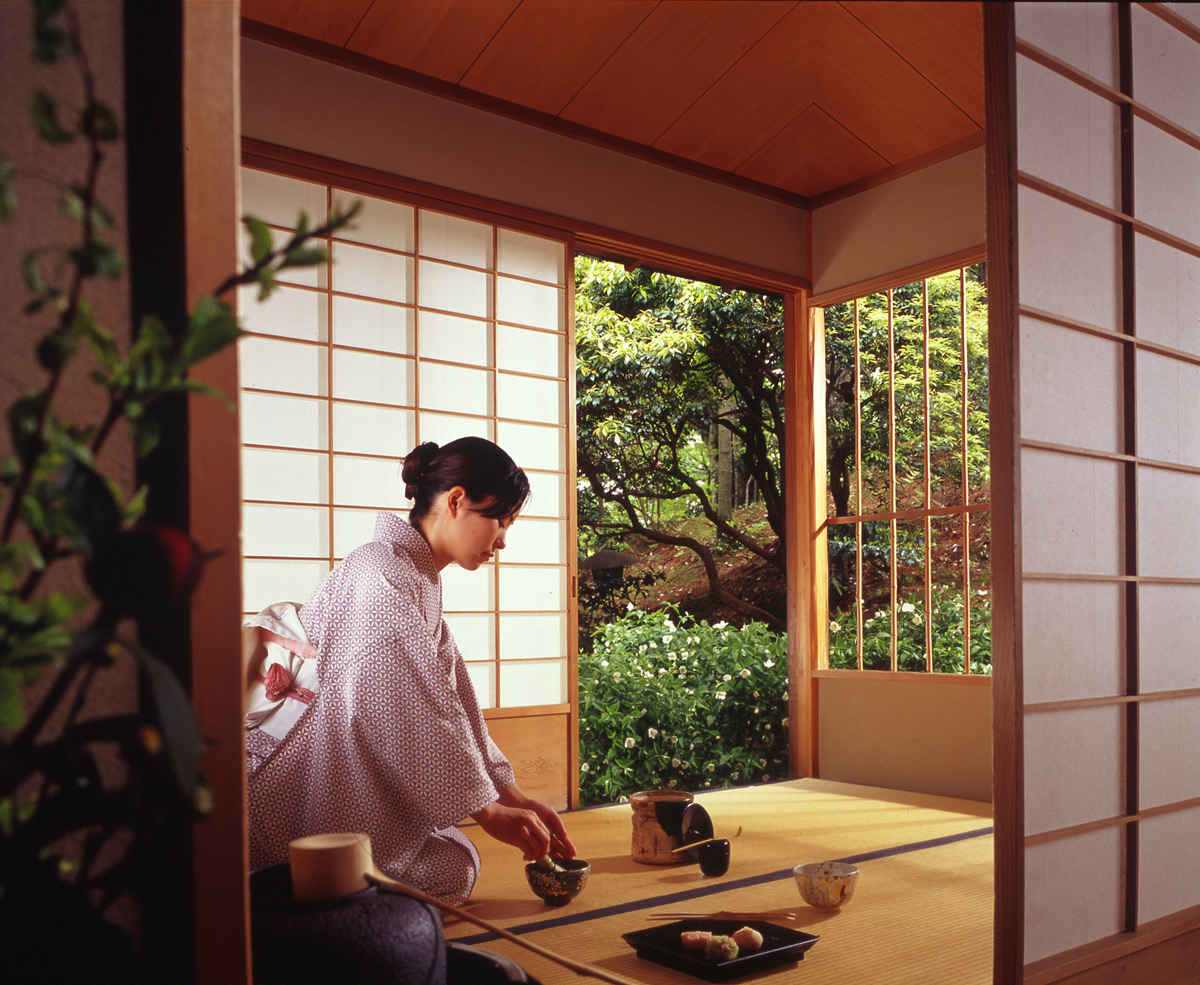
Tipping Etiquette When Traveling in Japan Swain Destinations Travel Blog
Sakurai Japanese Tea Experience. Pricier and far more modern than your traditional tea house, Sakurai is the place to go if you want some really high-quality tea, and lots of it. Owner Shinya Sakura studied for 12 years before opening this compact but stylish tea house and serves only the best—with all the knowledge and experience you could need.

Traditional Japanese tea room and garden Ryokan, Japanese traditional, Tea room
Embark on a DIY journey to build a serene Japanese Tea House. Explore tradition, design, maintenance tips & more with our comprehensive guide. 619-384-9663; 7 AM - 6 PM PST. (Art Display Area) are traditional elements of a Japanese Tea House that also serve practical purposes. The Chigaidana, or staggered shelves, are an excellent platform.

This charming and unique glamping site in Guerneville, California allows guests to enjoy the
These tea houses are serene spaces characterized by simplicity and natural beauty. The architecture of the tea house incorporates elements of traditional Japanese design, such as sliding doors, tatami flooring, and low ceilings. Adjacent to the tea house, a meticulously manicured tea garden, known as "roji," provides a tranquil setting for.
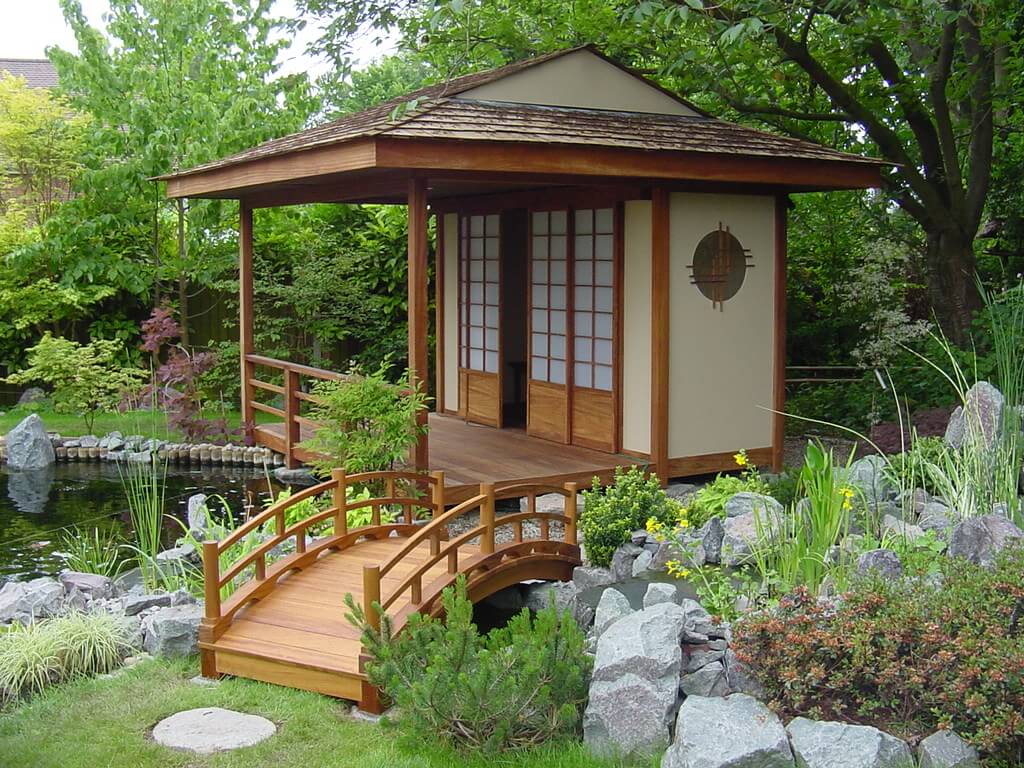
Japanese Tea House in hardwood Build a Japanese Garden UK
Sakurai Traditional Japanese Tea Experience. Sakurai may resemble an old apothecary, but it is first and foremost a teahouse. Only the finest teas from all over Japan are served here, carefully sourced and selected by the owner. The five-tea tasting course for ¥3,800 is the best way to experience it.

Japanese tea house in the heart of Monaco Small Japanese House, Japanese Style House
A traditional Japanese tea house is usually surrounded by a garden named roji (露地, dewy ground). This garden is made up of elements necessary for the accomplishment of the tea gathering and for meditation before entering the tea house. A stone path allows the progression of the guests (find out more about Authentic Japanese Garden Design).
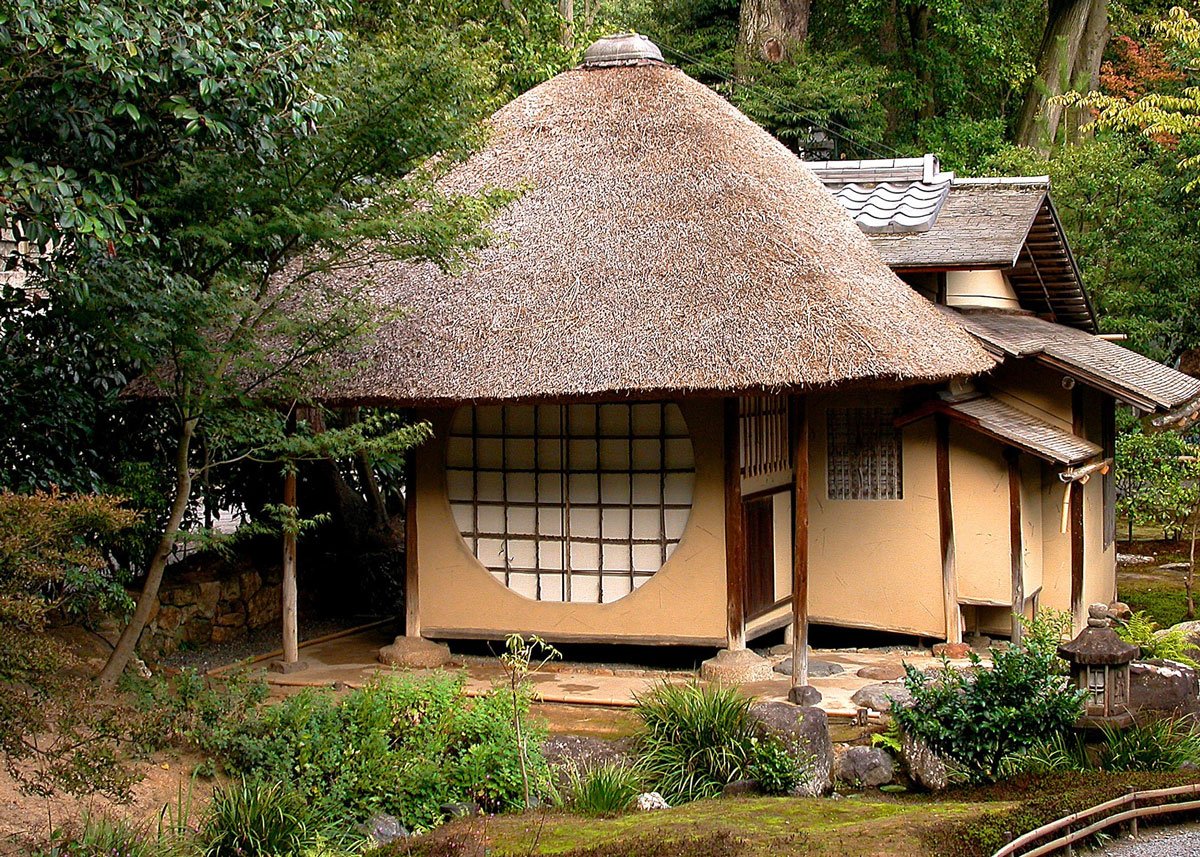
Japanese Tea Houses All You Need to Know About Chashitsu
The standard size for a traditional Japanese tea house is 8.2 square meters, which is four and a half tatami mats. Japanese rooms are typically measured by the number of tatami mats that would cover the floor. The smaller than four and a half tatami mats houses are called "Koma" and larger ones are called "Hiroma".
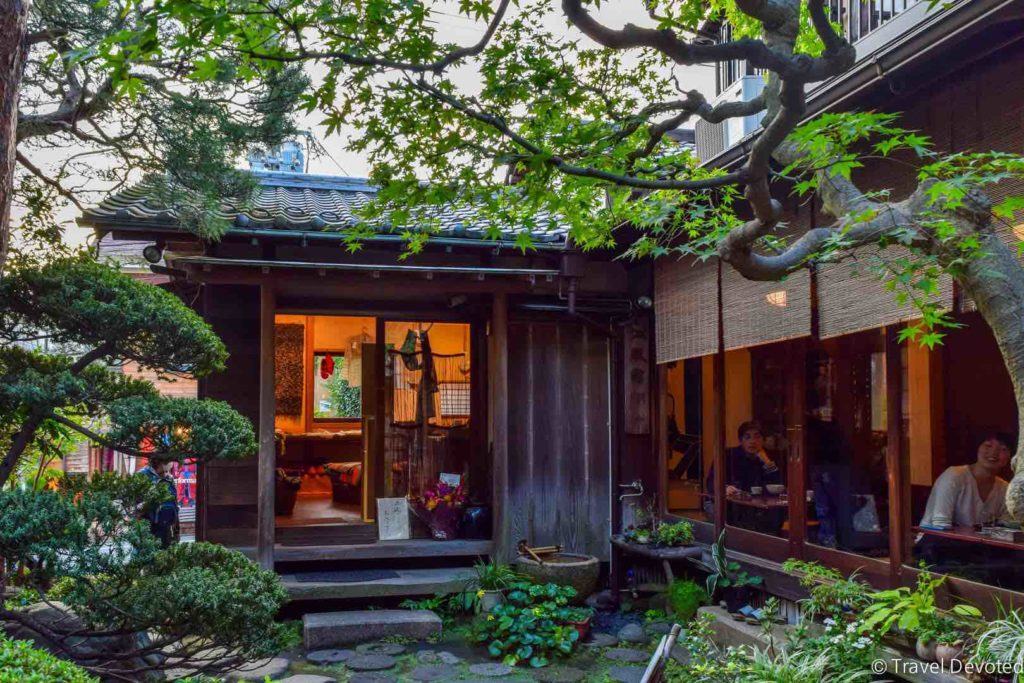
Visiting Kosoan tea house — The traditional tea room in Tokyo Living + Nomads Travel tips
Japanese tea houses, also known as chashitsu, are designed to create an atmosphere of tranquility and harmony. The architecture of these structures is characterized by simplicity, minimalism, and a deep connection with nature. Traditional tea houses are typically small, with low ceilings and sliding doors made of paper and wood.

The Metropolitan style is undoubtedly the hottest trend Interior Design Living Room Ideas
This is a review for tea rooms in Las Vegas, NV: "Queen of Hearts is a precious tea house decorated in red, white and black like a deck of cards. We celebrated a friends birthday there and had a wonderful time. The food is all home made and delicious. I would recommend this little cafe to all who are looking for a tea room and a good time.
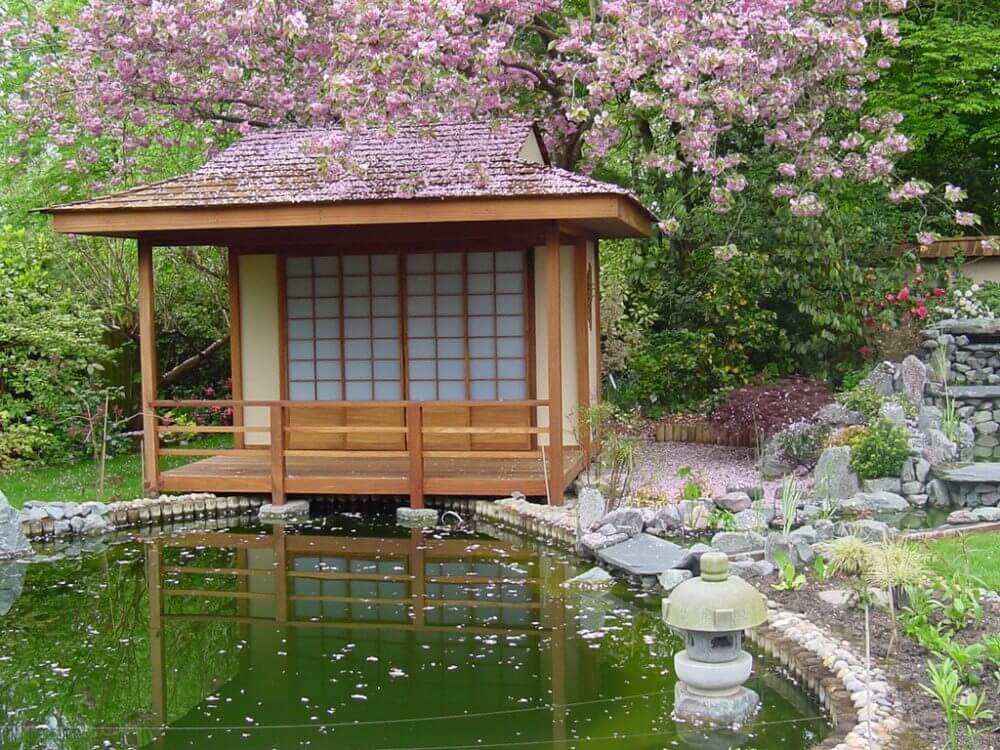
Japanese Tea House in hardwood Build a Japanese Garden UK
Tai An tea house in Kyoto is an architectural heritage of nation. It is an incredible masterpiece of Japanese Culture, that's why it is strongly recommended to visit.. Teahouse with a room facing onto Oigawa river. They serve omatcha (powdered green tea) along with traditional Japanese sweets. Yokohama. Choushukaku in Yokohama;
_in_Nara_Park.jpg)
Japanese Zen Garden Japanese Tea House
Japanese tea houses are built in a simple style with subdued colors. The pathway leading to the house is known as the "roji" or dewy ground. The path is marked with stepping stones, and guests will admire the surrounding plants and trees.. The windows and doors are often traditional Japanese shoji, while the sliding doors are covered.

besidebloomingirises Japanese tea house, Traditional japanese house, Tea house
What is the typical size of a traditional Japanese tea house, and can this be adjusted based on individual preferences? The traditional tea house, known as a 'Chashitsu', typically has a size of around 4.5 meters by 2.7 meters, with an adjoining waiting room called 'Mizuya'. However, the size can be adjusted based on the available space.
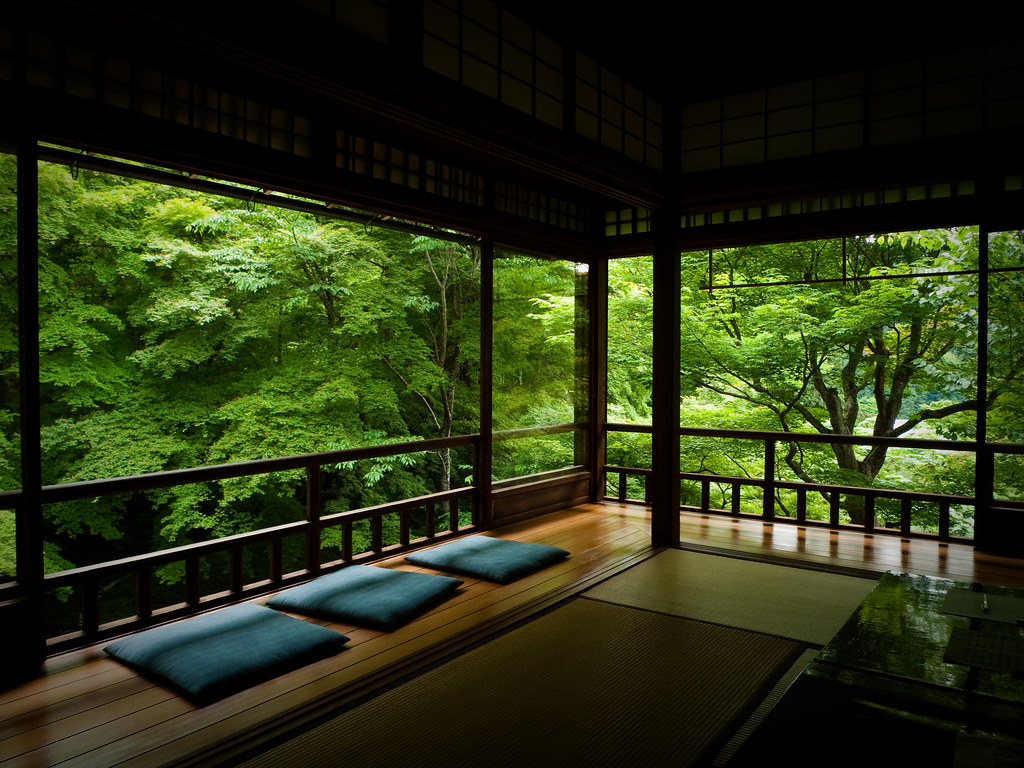
Picture of the Day Japanese Tea Room in Kyoto «TwistedSifter
A number of temples, traditional Japanese gardens, cultural facilities, and hotels have tea houses where visitors can experience a tea ceremony—particularly in Kyoto, the ancient capital that is still the center of Japan's traditional culture. And while a full, formal tea ceremony can last several hours, many venues offer abbreviated versions.

Kōdaiji's Ihōan Teahouse at Dusk (Explored) Traditional japanese house, Japanese house, Tea house
Step 1 - Choosing Your Site. Traditionally, the tea houses were constructed in gardens; hence your site should be in your garden. Alternatively, you can build it next to some trees. The point is to be one with nature when you're in the tea house. You should see your garden or trees when inside the Chashitsu.
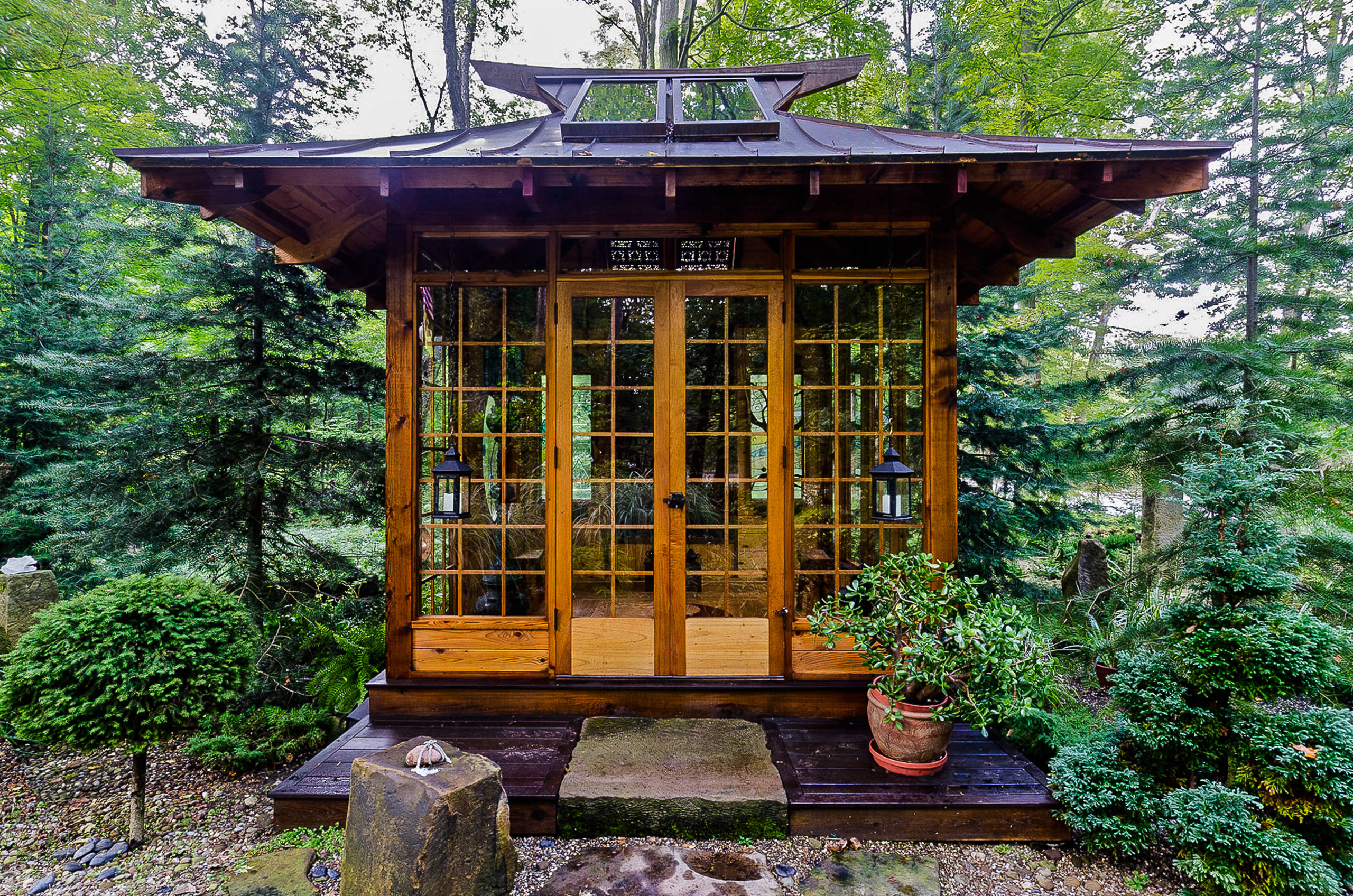
How to build a japanese tea house Builders Villa
抹茶入り煎茶姫. $ 24 .99. A deep-steamed green tea blended with organic matcha, with a refreshing natural sweetness and umami. + Add to cart. BUY ON AMAZON. Discover the serene beauty of Kyoto's traditional tea houses. Our Senbird Tea guide highlights the top tea ceremony experiences, perfect for any visitor seeking authentic Japanese.

Japanese Tea House, chashitsu wikipedia in japaneseeestanding structures specificallysigned for
8.2 square meters is the usual and standard size of a traditional chashitsu. The room size is measure by the number of tatami mats covering the floor. Traditional tea rooms are construct more from natural elements like bamboo, straws, wood, and vines. The houses that are a construct of less than four and a half tatami mats are call "Koma.

Traditional Japanese Tea House Japanese Tea House Gazebo, period (With images) Japanese
Jo-an is a chashitsu (tea house) and inscribed as a National Treasure Chashitsu in its garden setting, Itsuku-shima, circa 1900. Chashitsu (茶室, "tea room") in Japanese tradition is an architectural space designed to be used for tea ceremony (chanoyu) gatherings.. The architectural style that developed for chashitsu is referred to as the sukiya style (sukiya-zukuri), and the term sukiya.